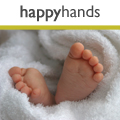Clinic
Diarrhoea
Almost all children will get diarrhoea or vomiting at some stage, especially if taken to foreign countries on holiday.
In almost all cases the illness will be brief and self-limiting, however it is important to treat children promptly to prevent them becoming dehydrated. Younger babies are more vulnerable than older children to the effects of diarrhoeal illnesses. In developed countries viral infections are responsible for most cases of acute gastro-enteritis in children under five years old. Children will often vomit before diarrhoea starts, and diarrhoea will often be watery. It may be difficult to distinguish from urine in a nappy. Dehydration initially causes children to become fretful, then lethargic, with sunken eyes and lax dry skin. Severe dehydration causes young children to become prostrate with deeply sunken eyes and cold mottled skin. Mild dehydration can be treated at home. Children should be given oral rehydration fluids, which can be bought at chemists. These are powders containing salts and sugar and which are dissolved in water. They allow prompt reversal of dehydration, and are more effective than water alone. No food should be given for 24 hours, after which time the normal diet can be gradually restarted. Moderate to severe dehydration requires hospitalisation for intravenous fluid therapy. In tropical countries, adding salt to coca cola also acts meningitis is usually mild, and rarely causes any long term problems.
Related Articles
First Aid courses from an award winning London based company
New website offers support for parents of children with allergies
Tummy troubles – dealing with them and avoiding them
Head Injuries - what to do and what to look out for
Have Your Say
Be the first person to comment on this article, just post a comment below.





In order to post a comment you need to be a member. Join Now | Sign in